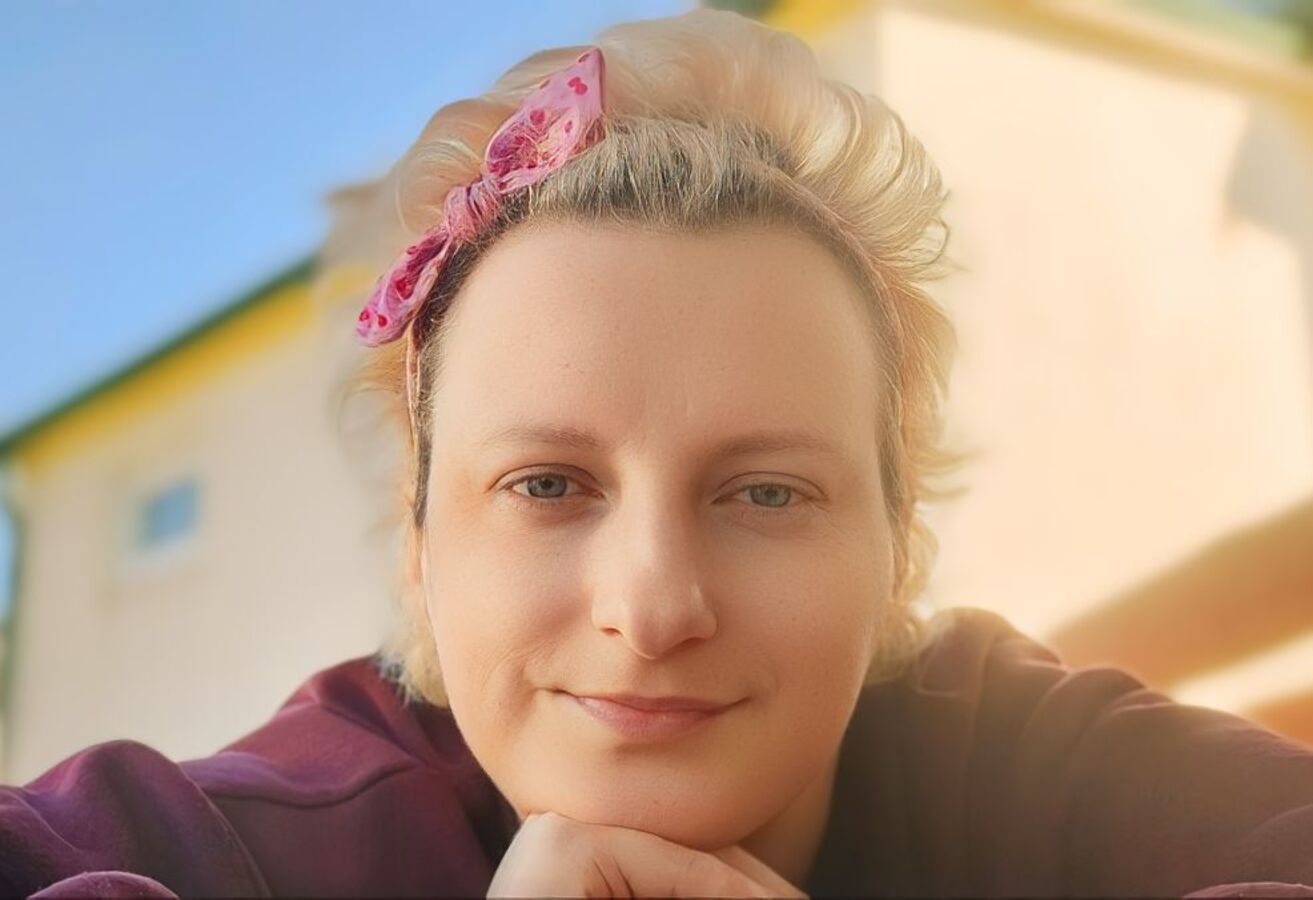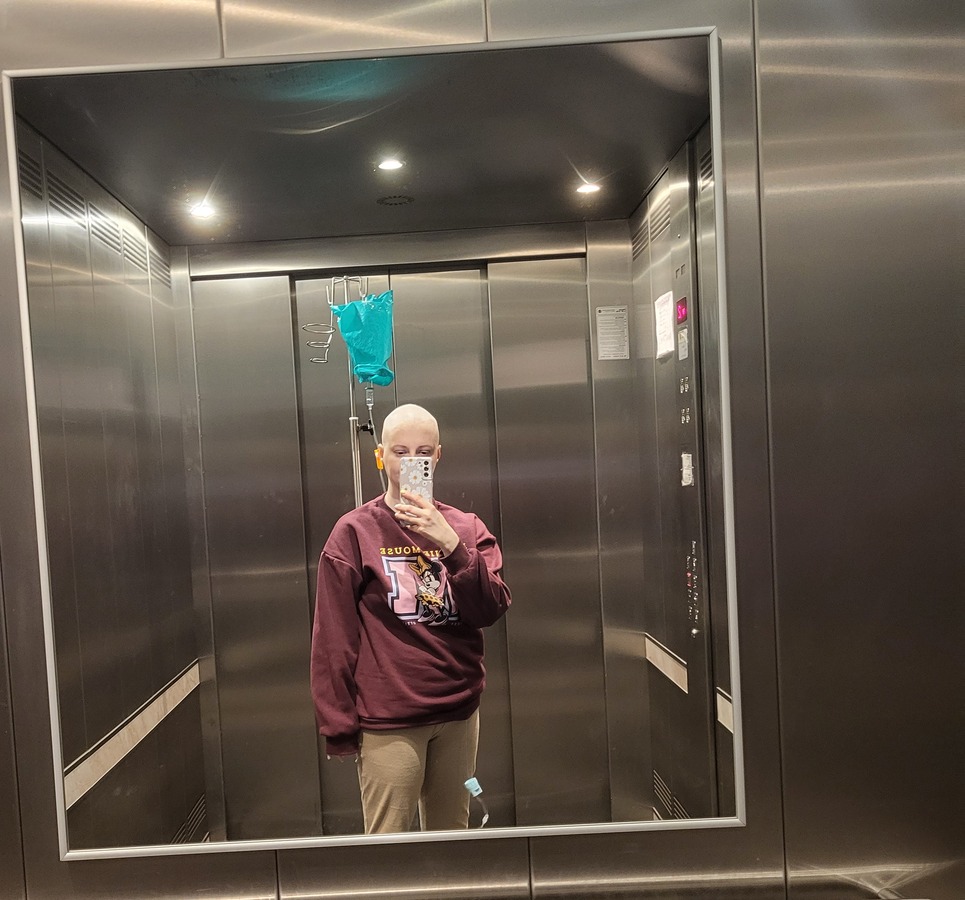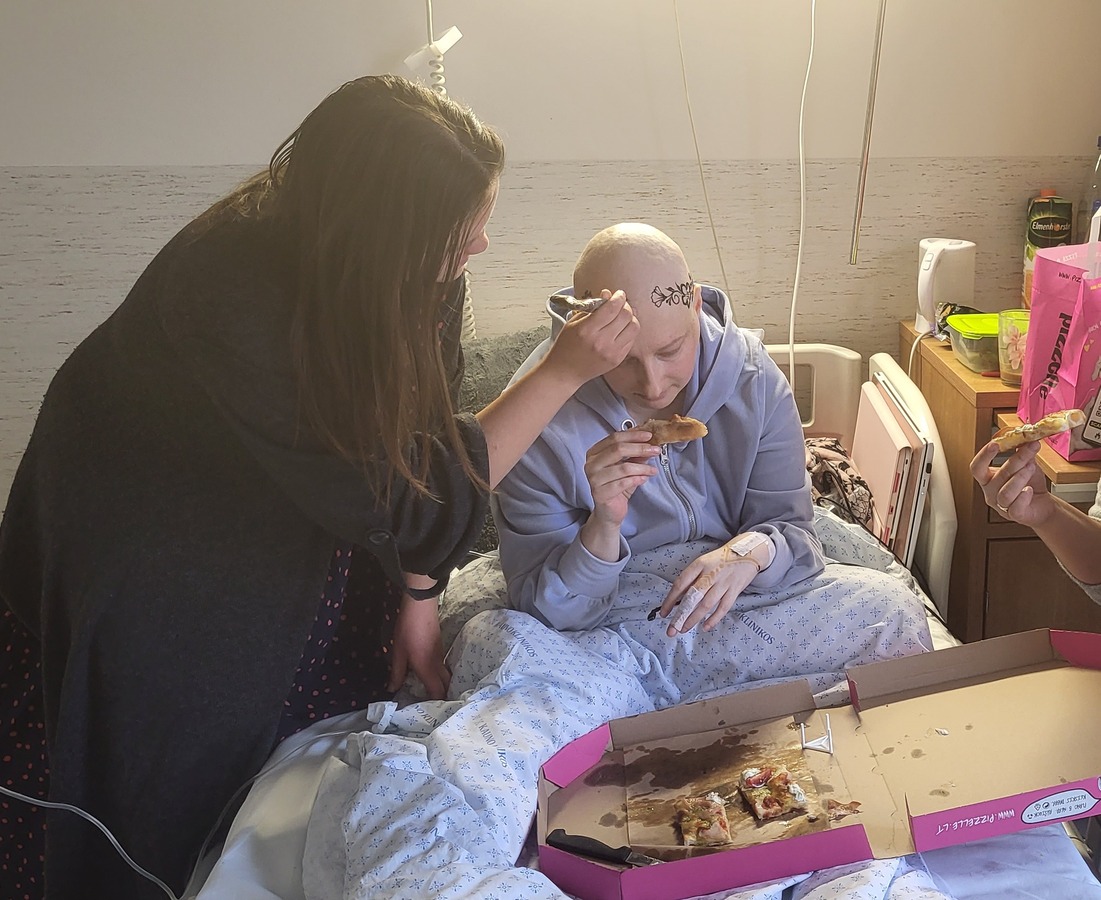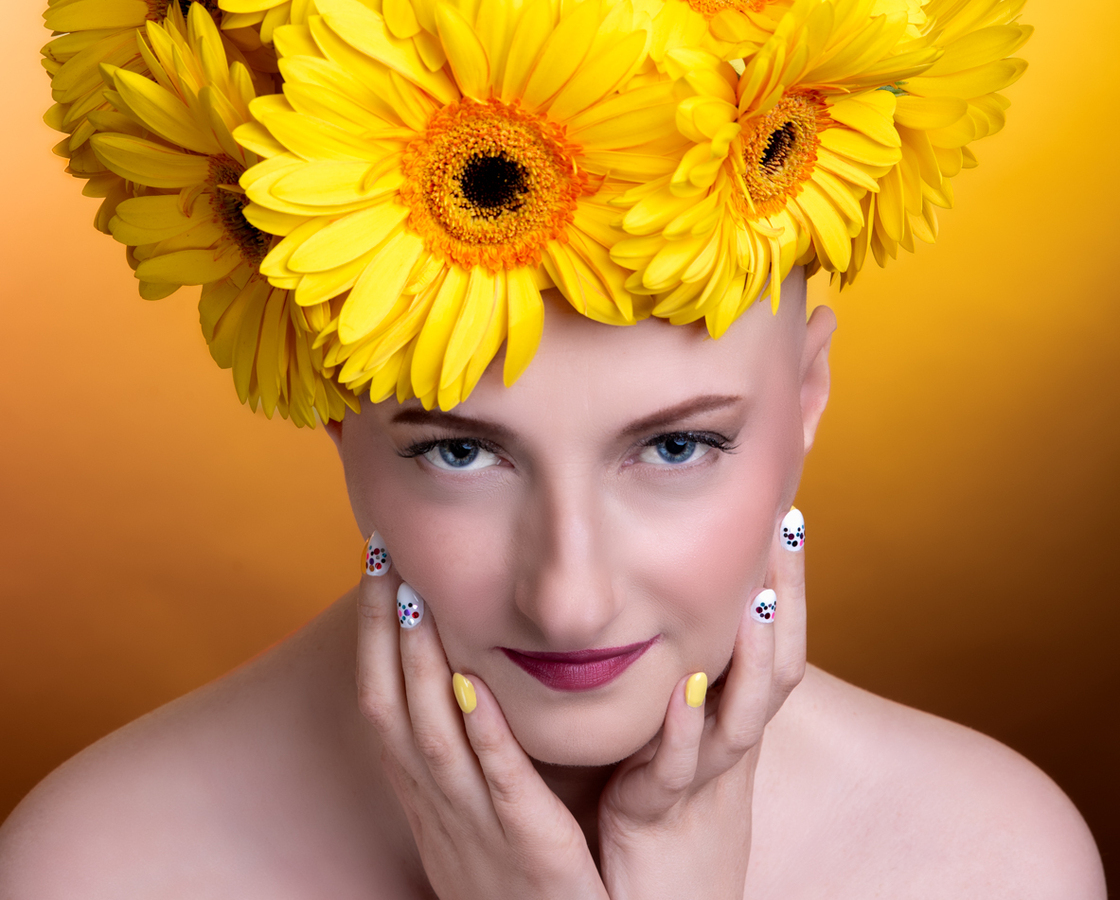In this interview, Ruta Dvylyte opens up about the twists and turns she’s faced after being diagnosed with a high grade osteosarcoma—twice. She talks about the ups and downs, what helped her stay strong, and how these experiences pushed her to get involved in projects that bring joy and support to others, like her “Gratitude Box” initiative.
Can you introduce yourself?
I am Ruta Dvylyte, I am 32 years old, and I am from Lithuania. I live in a small town Kalvarija near the border with Poland.

What was your diagnosis?
I was diagnosed with high grade (G3) osteosarcoma twice.
When did you first learn about your diagnosis?
I first heard the diagnosis of cancer in the fall of 2014 when I suffered a pathological fracture in my left arm at the elbow joint. Many tests were performed before the final diagnosis was confirmed, and this process took several months.

The second time it happened, in September 2022,when I felt a severe pain in my leg, and it seemed like the bone could break while walking. However, I didn’t think about the possibility of the disease coming back, as it seemed there was such a small chance of it coming back—around 5%, as far as I know. I called my doctor, we ran some tests, and it was diagnosed as a recurrence of the disease.
What motivated you to become a part of EU-CAYAS-NET, and what does it mean to you?
I often felt lonely. You are an adult, but your life is just beginning, and we face so many challenges. Being part of this community I met young people who know what cancer is at a young age. This helps me a lot. Their stories are important to me. It’s important for me also to share my story and for it to reach those who need to hear it because I once really needed that myself.
The idea of this project and the work being done are very important, not only for those personally affected by the illness but also for healthcare institutions and others.

What helped you during the treatment process? Was there something or someone that made a big difference?
After being diagnosed with cancer for the second time, I started writing a diary on Instagram. It was public and accessible to everyone. It helped me in my fight with my own thoughts, helped me understand myself better, and taught me to accept help. Many people prayed for me and sent words of support. By sharing my experience, I helped others find the support they needed. Writing is like therapy for me.
How has your life shifted since your diagnosis? How have things changed for you, both big and small?
I started volunteering with people who have cancer. For several years now, I have run my own project called the “Gratitude Box” through which I bring joy to other cancer patients with small gifts. This project was inspired by my own story. I also represent patients as a member of the Patient Council at a healthcare institution. One of the proposals we implemented was wheelchair stations. Anyone in need can borrow a wheelchair to move more easily between the university hospital buildings and then return it. This idea came from personal experience. In 2022, I had to use crutches for half a year, but covering the long distances within the hospital was difficult. Patients are grateful for the implementation of this initiative.
If you could go back to the day you were diagnosed, what would you say to yourself then?
I got sick for the first time when I was 22, knowing very little about what cancer truly is. Many things brought fear and uncertainty. I wish I could have told myself that there would be moments of helplessness and sadness, but there would also be joy—like having a pizza party with friends in the hospital. There would be moments when you would feel proud of yourself. You have to keep going, step by step, and live in the present moment.
What is one thing you wish more people understood about being a young cancer survivor?
When you should be having fun, making lifelong friends, and creating future plans, you suddenly find yourself set apart from your peers, who don’t know what it’s like to have cancer. We want to communicate; we need you to be able to talk not only about cancer but also about other things. Support us.

What are some of your proudest achievements so far?
When I first got sick, I was about to start my final year at university. The doctors said that I wouldn’t be able to study and that I should pause my studies because it would be too difficult. But they didn’t know me. I spent a lot of time in the hospital during chemotherapy; it was incredibly hard, but it didn’t stop me from writing my bachelor’s thesis, receiving the highest grade, and graduating from university. I received great support from my university professors, who helped me a lot on this journey. I am a social worker. It’s one of the best things that reminds me every day that we are the ones responsible for the boundaries we set in life, not others.
How do you like to spend your free time? What are your favorite hobbies or activities?
I enjoy attending basketball games, not just watching, but actively participating in the support. I also love traveling; during my travels, I enjoy observing people, nature, and experiencing the way cities live. I really enjoy listening to music and attending concerts of my favorite artists. I like dark humor and stand-up performances.Volunteering is a part of my life.
Do you have a life motto? What quote or saying inspires you the most?
Have the courage to want more. Fear is what helps us move forward. To feel afraid but still take action gives you a sense of pride for doing something you didn’t think you could.
What’s on your bucket list? Is there something you’re dreaming of doing or accomplishing?
Both times, my treatment lasted 1.5 years. I finished the treatment in February 2024. I miss traveling, meeting people and exploring the world.
Now for my bucket list: to attend a Coldplay concert (and while answering questions, I managed to buy a ticket!). I also want to visit a Christmas market in one of the European cities and walk through the streets of cities I’ve seen in my favorite movies or TV shows (like Paris in “Emily in Paris“ and others).
What keeps you motivated every day? Is there something that drives you forward, even on tough days?
Every day, I have the chance to write my own story. In the toughest moments, my family supports me by being there for me. This diagnosis has brought many difficult moments, including times when I almost lost my arm—first due to cancer, and later because of treatment complications. During all those times, my doctors were by my side, doing everything they could to help me recover. I learned from them the importance of not giving up. It’s okay to pause for a moment, but as long as there is even a minimal chance, you have to keep holding on. In my toughest moments, I remind myself that many wonderful things are still waiting for me.
What’s one thing everyone should know about you? Feel free to share something unique or important!
I’m a highly sensitive person (HSP). This means I have a more sensitive nervous system: to sounds, smells, pain, and lights, but I also have strong intuition. Being a highly sensitive person helps me in interacting with others, as I am empathetic. I enjoy having deep connections with people. I enjoy focusing on important matters and analyzing them from different perspectives, allowing me to approach situations with greater insight and clarity. I often notice that I see the world not as it is, but as it should be.






Comments
Thank you. Comment sent for approval.
Something is wrong, try again later